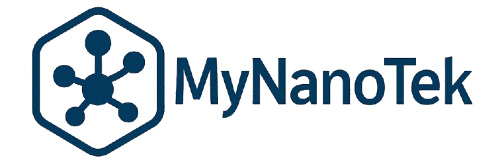The ethics of nanotech in genetic enhancements
What Price Will We Pay for Perfection?
Imagine a world where you could design your child’s genetic makeup to ensure they have the intelligence of Einstein, the athletic prowess of Michael Jordan, or the artistic talents of Da Vinci. The advent of nanotechnology in genetic enhancements brings this once Sci-Fi concept within reach. But at what cost does this pursuit of perfection come?
The Promise and Peril of Nanotech in Genetic Enhancements
Nanotechnology, the manipulation of matter on an atomic and molecular scale, has opened new frontiers in medicine and genetics. With its potential to alter human DNA, nanotech presents both unprecedented opportunities and significant ethical dilemmas. Is it right to use technology to enhance our genetic code? What societal impacts could these innovations have?
Encadré: Nanotechnology
Nanotechnology involves the manipulation of matter at a scale of 1 to 100 nanometers. One nanometer is one-billionth of a meter, which allows scientists to work with individual atoms and molecules.
The Ethical Quagmire
“With great power comes great responsibility,” a timeless quote from Voltaire, aptly applies to the field of genetic enhancements via nanotechnology. The ethical quandaries revolve around issues of equity, consent, and long-term effects.
- Equity: Will genetic enhancements be accessible to all, or only to those who can afford them?
- Consent: Can parents ethically make genetic choices for their unborn children?
- Long-term effects: What unforeseen consequences might arise from altering human genetics?
Agitation: The Societal Ripple Effects
The societal implications of genetic enhancements cannot be understated. If only a part of the population can afford these enhancements, we risk creating a society divided by genetic caste systems. Inequality could widen, as those with enhanced capabilities may dominate various fields, leaving unenhanced individuals at a disadvantage.
Furthermore, the pressure to conform to enhanced standards could become overwhelming. Imagine a world where natural talents and abilities are undervalued, leading to a loss of diversity in human skills and experiences.
Solution: Ethical Frameworks and Regulations
As these technology trends continue to evolve, establishing ethical frameworks and regulations is paramount. Governments, scientists, and ethicists must collaborate to create policies that manage the use of nanotechnology in genetic enhancements. These should aim to ensure:
- Equitable access to enhancements
- Comprehensive informed consent processes
- Rigorous oversight to monitor long-term impacts
“The challenge is not just to make life longer, but to make it better, and that includes moral and ethical considerations.” – Francis Fukuyama
The Road Ahead
As we stand on the brink of this new era of innovation, the responsibility to guide its course wisely falls on our shoulders. The choices we make today about the application of nanotech in genetic enhancements will shape the future of humanity. It is vital to weigh the benefits against the moral and ethical implications.
The conversation surrounding these issues must continue with transparency and inclusivity, ensuring that diverse voices are heard and considered. By fostering a culture of ethical vigilance, we can harness the potential of future tech innovations responsibly.
Now It’s Your Turn
The debate on the ethics of nanotechnology in genetic enhancements is just beginning. What are your thoughts on this complex issue? Engage in discussions, educate yourself, and become part of the conversation about how we can collectively navigate the future of technology and humanity.
